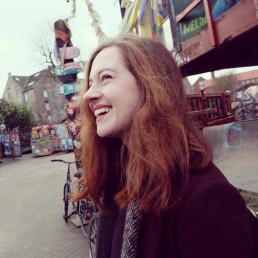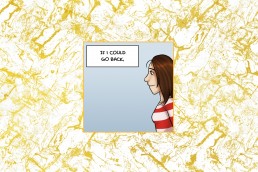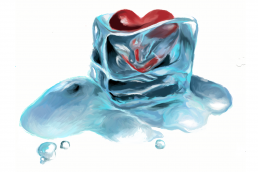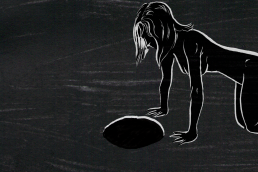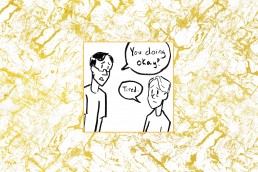by Fiona Longmuir
The first moment you see him, you know. The second he steps onto the cinema screen. He’s handsome. He’s sweet. He treats the heroine with unrelenting kindness and respect. And you just know.
He’s not the one she’s ending up with.
In the movies, we know that we’re looking for passion. For that elusive spark. For the man who calls her out. Who makes her miserable. Who fights with her all day every day and then kisses her tears away in the rain. In the movies, “we get on” is basically shorthand for “we bore each other to tears”. Satisfaction is equated with settling. Passion is equated with drama. Admittedly, two people calmly and considerately building a happy life together isn’t exactly great narrative, but what happens when these attitudes start spilling into our own offscreen romances?
All of us have known a couple who thrive on drama. Who break up and make up and fight and yell. And if that is your thing? My god, more power to you. I tip my hat to you. But can I tell you something? It is absolutely not my thing.
Even writing that feels like a confession. Comfort has become a bad word when it comes to relationships. We’ve been taught by every movie, every TV show that if you’re feeling contented with someone, you’ve somehow settled for less. They’re probably stifling you. We write off safe, comfortable romances as being good on paper, missing some vital ingredient. And sure, we should all aim to be with people who challenge us, who teach us things and make us better. But I just don’t have the energy to fight with someone all of the time. I want my home to be a sanctuary, not a battleground. I want to come home and feel safe. To be able to let my guard down.
When we look at the language we use to describe being in love, it’s easy to see why we carry the Hollywood stereotypes into our real lives. We’re crazy about someone. Mad about them. We get lovesick. We fall. It’s no wonder we think it’s supposed to hurt. But the truth is, the love in your life should heal you. It should nourish you, fill you up until your soul is overflowing with it. Storms are exciting, but love should be a safe harbour.
In the Notebook, perhaps the quintessential romantic movie, we switch perspectives between the young couple, locked in exhausting and fretful fits of passion, and the elderly couple, tenderly caring for each other as best as they can. We don’t see the transition, those quiet years where the two learn how to be gentle with each other, how to show compassion. Of course we don’t. Like I said, it doesn’t make for great narrative. But that’s where relationships are forged. Brick by brick, in the tiny everyday moments. In the moments that never make it to Instagram, that you don’t tell your friends, so small that you maybe don’t even notice yourself at the time. The strength in hurting and lashing out and having someone cover your hand with theirs and gently respond “It’s okay. I love you.” At the beginning of the movie, we see passion. At the end of the movie, in all of its quiet, unexceptional grace, we see love.
Sometimes, love is an enormous, theatrical gesture. Sometimes it’s when someone knows exactly the moment to put down a cup of tea in front of you. It’s noses gently brushing together, as much as it is bodies intertwining beneath soft sheets. It’s the way my heart pounds when I hear his key in the door as much as the way my blood sings when he kisses me. For me, the sweetness of love doesn’t lessen its strength. For me, love is about warmth as much as it is about heat.
Fiona Longmuir
Fiona is a twenty six year old Glasgow girl living in London. She is a professional storyteller, angry feminist and general calamity. Normally to be found with her nose in a book, buying pin badges or baring her soul for the entertainment of strangers on the internet.




